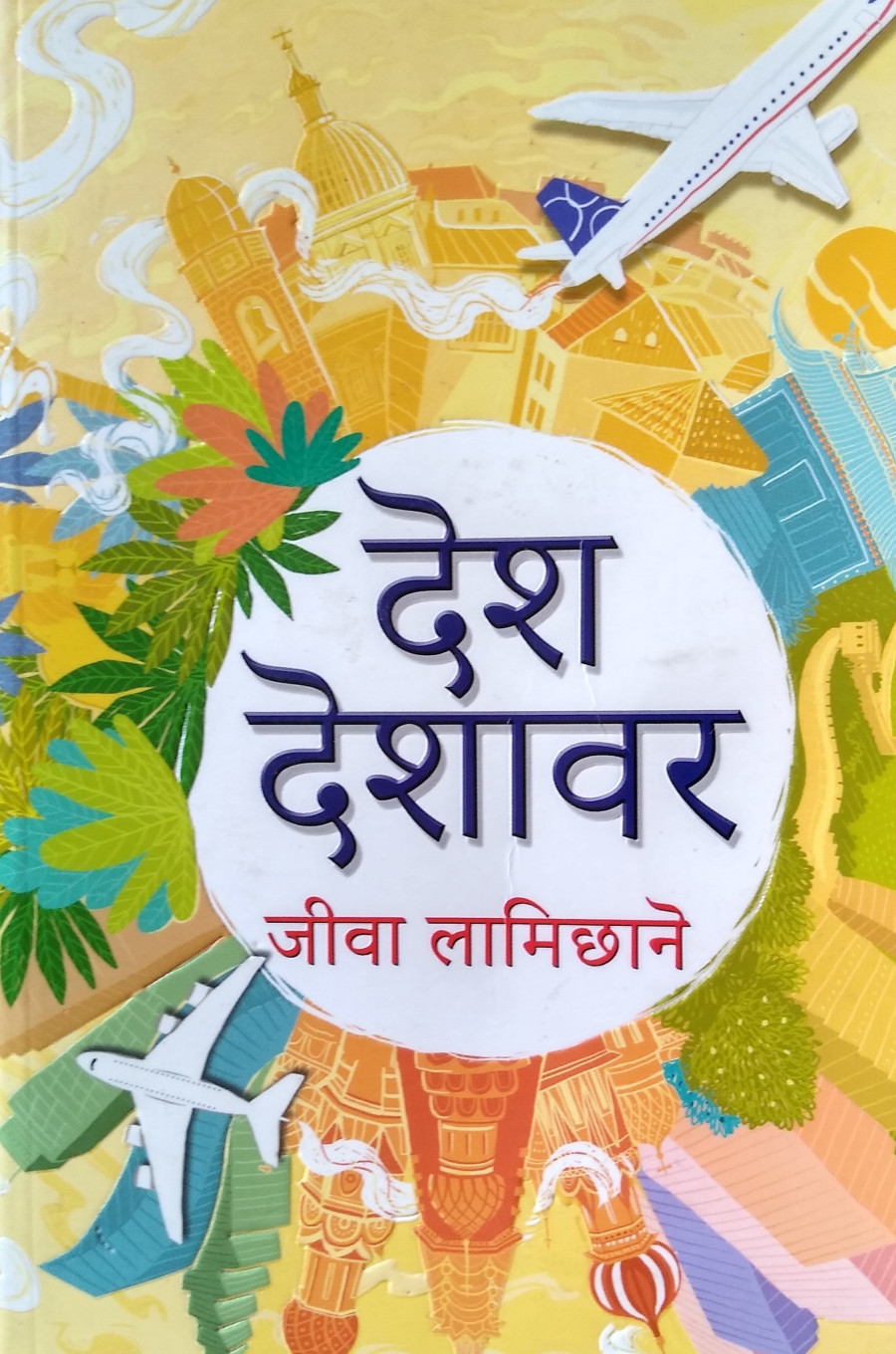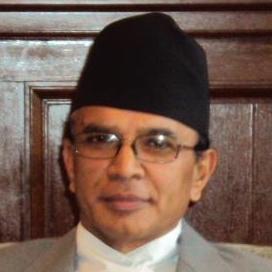Books
Reflections of a self-made entrepreneur
In Desh Deshawar, Jiba Lamichhane laments the nation’s utter failure—which he blames on a paucity of visionary and strong-willed leadership.
Madan Kumar Bhattarai
The book entitled ‘Desh Deshawar’, which can be roughly translated as ‘Across Countries’, is the second part of the travelogue penned by Jiba Lamichhane, an avid diarist. The first travelogue was ‘Sarsarti Sansar’, meaning ‘The World in Passing’. With an attractive front cover, portraying both natural and architectural variance of the world, the new book reminds readers of the world’s diverse history and geography.
In the book, the writer, Jiba Lamichhane—an engineer from the erstwhile Soviet Union, who is now settled in Germany with business companies spread even to Nepal, and a former President of the Non-Resident Nepali Association (NRNA) International Coordination Committee (ICC)—combines the credentials of a self-made entrepreneur of an increasingly vibrant Nepali diaspora.
The book, which keeps readers abreast with cultures and socio-economic state of various countries, is divided into 20 chapters. The first four chapters talk about the treatise deal with four countries of Africa. The first chapter deals with Rwanda, and the most positive turnaround the country witnessed, which the author personally experienced during his travels to the country within a span of 22 years. Rwanda was once ravaged by a civil war, leaving hundreds of thousands dead and many more displaced, forcing them to flee to neighbouring countries including Uganda and Burundi.
But post the war, Rwanda made quick progress in a span of two decades, almost as a follow-up of exemplary accomplishments made by statesmen like Deng Xiaoping (in China), Lee Kuan Yew (in Singapore) and Mahathir Mohammed (in Malaysia). But in the context of Nepal, in the wake of violence and insurgency, the country failed to grow. Drawing parallels, Lamichhane laments the nation’s utter failure—which he blames to what he calls paucity of visionary and strong-willed leadership and lack of transparency and accountability in governance.
The second and third chapters respectively deal with two more countries of Africa, Tanzania and Mozambique, and their trials and tribulations in the course of their long history as they fell under the yoke of colonial masters along with their strong points in terms of rich anthropological heritage and biological diversity and natural wealth.
The fourth and last chapters on Africa contain details of Uganda, a country that was once known for extreme cruelty, barbarity and dictatorship of Dada Idi Amin but is now taking steps to slowly forget the excesses that once made headlines across the world, including Amin's treatment of his own people and Asians who were forced to leave the country.
One matter that is specially mentioned by the author is the provision of granting visa to Nepali passport holders on arrival in Uganda that has sadly become a vanishing phenomenon as a reflection of the increasing loss of the credibility that Nepal once enjoyed across the world.
The fifth chapter deals with the author's exploratory tour of the Caribbean region with special focus on the mysterious Bermuda Triangle and Haiti. The next three chapters are devoted to the odyssey of three different European countries, Croatia, Iceland and Finland. And the ninth chapter dwells on the entertainment capital of the United States: Las Vegas. The 10th chapter includes the vagaries of artificial division as imposed on Cyprus relating to the agony of Nicosia. Two subsequent chapters respectively relate to Sri Lanka and Canada and their salient features.
The 13th and 14th chapters depict China's stupendous progress under what were called four modernisation programmes launched by Deng Xiaoping and comparative status of Hong Kong in 1997 in the last year of the British rule and in 2013 under one and half decades of China's sovereignty respectively.
The 15th chapter is special both from the standpoint of the end of the Cold War that accompanied the Second World War and from Nepal’s individual perspective. The title of the chapter is self-evidently catchy, ‘Mister Gorbachev, Tear Down This Wall’ attributed to the 40th President of the United States Ronald Reagan. Reagan made this speech at the Brandenburg Gate in Berlin on June 12, 1987, receiving the most enthusiastic response from the audience as he stressed the demolition of the Wall erected in 1961.
After the collapse of the Berlin Wall within a period of a little more than two years, this famous speech not only gained its due prominence but also catapulted Reagan to become one of the greatest presidents of his country and the most popular leader after John F Kennedy.
Two more chapters are devoted to Russia, specially the birthplace of litterateur Leo Tolstoy, Yasnaya Polyana, and Dagestan that has geographical similarities with Nepal. The last three chapters again relate to Germany including the beer festival and use of King Birendra's name as a brand for a particular beer and erection of Nepal Himal Pavilion at Regensburg located in the Catholic majority lander of Bavaria.
The writer deserves accolades for his lucid portrayal of the progress of the world—covering a wider canvas spanning Asia, Africa, Europe, the United States and even Caribbean islands—and comparing them to the progress of Nepal. The central message of the book is his lurking frustration with the state of affairs in Nepal under different dispensations that seem to have changed the regimes, systems, governments, styles, semantics and forms but done precious little to ensure better governance and tackle the core issues of human and material development to the chagrin of majority of the people in the country. It seems the prevailing state of affairs in Nepal stings the inner conscience of the author.
——————————————————-
Desh Deshawar
Jiba Lamichhane
Publishers: Fineprint Books
Pages 212
Price: Rs 395




 22.11°C Kathmandu
22.11°C Kathmandu










